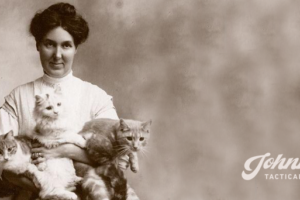Seeing things you don’t want to see and can’t un-see are an unavoidable part of the job. Different things affect different people in different ways. Trauma is subjective. That is not good or bad, it’s just the way it is. However, there are things we can do to steel our mind against the horrible things we have to see to mitigate the effect that trauma can have on us.
Two Categories
In my experience, and in my opinion, the two most traumatic categories of things we will see are injured or dead children and injured or dead police officers.
Most of us in law enforcement would agree that seeing adult dead bodies is pretty routine, and after some time on the job we don’t think much of it. That may be cold, but that’s the way it is. However, there is a part of us that will always be affected when seeing a child that has been injured or that has died. I don’t know the science behind it, but there is something innate in all of us that makes us especially sensitive to children — to their nurturing and their protection. And when we see the result of something bad that has happened to a child, that part of us is triggered and those experiences will always have an effect on us.
In a similar way, seeing another officer injured or (God forbid) killed strikes a similar chord inside of us. There is a vicarious connection between us and the other officer in that we can easily see ourselves in their shoes and think, “That could have been me,” or, “I could have done something about it.” That kind of connection makes it easy to empathize and, in a sense, live out the same trauma that they experienced in our own minds.
Mental Survival
Since experiencing trauma is a part of what we do, we need to develop tactics to protect ourselves, our minds, and to increase the likelihood of successful outcomes. The key to mental survival is to insulate, not isolate. There are things we can do to insulate ourselves and our minds against the chilling effects of evil. Isolating ourselves is a lonely path to a slow death that can include excessive solitude, substance abuse, or various addictions. Isolation is not the answer.
So that begs the question, how do we insulate? What layers can we add to protect ourselves? Here a few ideas:
Four Tactics For A More Resilient Mind
- Talk about it before you see it — like, right before. Talk about what you might see as you are en route to the scene. Say out loud that there’s going to be some messed up stuff waiting for you. Tell the guy beside you to prepare himself for blood and guts or screaming and yelling and agony. Whatever it is that you are on your way to, just say it out loud. This will cue the mind to start setting up defenses and give it time to adjust. It’s almost like telling your son or daughter at the 4th of July barbecue that crazy Uncle Eddy is about to shoot off some fireworks. You do that so your child has time to prepare for it, to expect it, and to cover their ears. Without a warning the poor kid will be scared out of their wits when the fireworks start popping off if they didn’t know it was coming. Our brains aren’t much different.
- Talk about it after you see it. This is the part we can get embarrassed about or maybe feel like a wimp if we bring it up. That ought not to be the case. Seeing traumatic things or going through a traumatic event will take its toll on you. It is not a matter of if, but when. Talking about it after the fact is just admitting that it happened, that it was real, that you’re not crazy, and will allow someone else to help you carry that burden. It doesn’t have to be in a professional setting, but can simply be between you and a peer or your spouse. This is something I went through a number of years ago. You can read about it here.
- Faith. Having a religion or a belief system that points you to a Higher Power reminds you that you are not alone in this life and that there is a God who is in control, despite what we have seen or been through. I am a Christian. Personally, I believe in an omniscient, omnipotent God and I know that He has my best interest at heart. My faith in Him allows me to lay things down that I cannot carry on my own. For me, it is about a relationship with God, not a religion. It is a firm foundation in an uncertain, ever-changing world. If you don’t cling to any beliefs in particular, let me encourage you to start exploring. Having unanswered eternal questions can make the temporal ones that much more difficult to bear.
- Engage in training that is as realistic as possible. While training with my first SWAT team, one of the team leaders talked about “stress inoculation.” It meant that if we trained as close to the real thing as often as we possibly could then when the real thing happened our minds would be prepared and we’ll be able to function in high-stress environments. We’ll be able to perform and do what needs to be done as if we’ve been through it before which reduces the shock factor. I don’t know if we can ever be 100% inoculated against stress or trauma, but I do know from experience that stress inoculation certainly helps.
The Aggregation Of Marginal Losses
You may be familiar with the concept in sports or in personal growth that’s referred to as the aggregation of marginal gains. The idea is that many tiny improvements, like 1% improvements, over time will result in large measurable gains and will be the difference between winning and losing. Well, when it comes to trauma, I believe that there is an aggregation of marginal losses. Tiny 1%, almost immeasurable, losses add up over time and will result in large measurable problems. To benefit from the aggregation of marginal gains you have to be intentional. In the same way, to guard yourself against the aggregation of marginal losses, you have to intentionally employ tactics and strategies like those listed above.
No matter what stage you are in your career, chances are you’ve already experienced a traumatic event. Don’t ignore those 1% losses. Be proactive. Don’t wait for things to happen to you — you happen to them.
__________________________
- What, if anything, are you doing to deal with trauma?
- Is faith a part of your life?
- How realistic is the training you get?
- What ideas do you have that could help others in this area?
__________________________
Thanks for reading! Do you have a story that you think we could learn from and that you’d like to share with Johnny Tactical nation? Fill out the contact form and include your name, rank, and department, or email it to [email protected] and follow these guidelines:
- It must be a firsthand account
- True
- Have a lesson, principle, or tactic to apply
- Cleaned of names, dates, and places
- Include your call sign
If your story is selected and published in our blog you’ll get the credit using your call sign and we’ll send you a free Johnny Tactical sticker.





Leave a Reply
Your email is safe with us.
You must be logged in to post a comment.